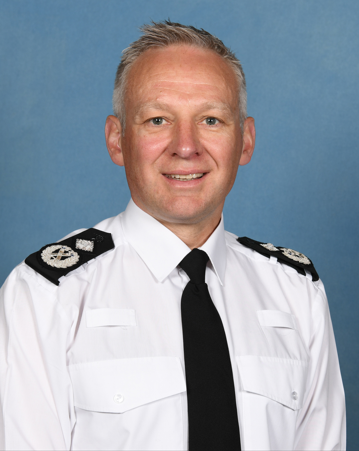
Data Privacy Starts With Cyber Basics
Data Privacy Day is a useful reminder that privacy and cyber security are not separate conversations. You can have the best privacy policy in the…
This article was written by DCC Malcolm Graham, Police Scotland.

As the service of first and last resort, policing will always respond to keep people safe in times of crisis.
And while we must be visible within the communities from which we draw our legitimacy, the challenge facing us today is where is the frontline? Where do our communities need us most?
Our lives are shaped by the digital world, be it computers, smartphones, TVs – even our cars, fridges and washing machines.
Scotland enjoys relatively low levels of crime compared to others around the world, but sophisticated cybercrime gangs, who exploit the digital space for huge gains, do not recognise borders.
The threat to our everyday lives from online child sexual exploitation, fraud, and human trafficking, as well as sophisticated malware and ransomware attacks, has never been greater.
Cybercrime has increased exponentially in Scotland from 3,700 reported crimes in 2018, almost doubling year on year to over 15,000 in 2021, taking account of the significant under-reporting of this type of offence.
One example of the scale of under reporting is the Deadbolt ransomware strain which is known to have been deployed on over 17,500 occasions, with less than 1% of these attacks reported to law enforcement (three in Scotland).
Reports of cryptocurrency fraud to Police Scotland have increased by 1200% in 2022, with the vast majority from online scams purporting to deliver enhanced returns on investments.
This reflects the global trajectory of crimes of this nature. In October this year, £718m of cryptocurrency was appropriated criminally across the world, the highest of any month so far.
As a strategic leader within Police Scotland, I am always very clear that today’s frontline for policing is as much within our homes and our places of work as it is on the streets.
Our officers working on computers to identify cyber criminals and protect our most vulnerable are, while less visible, just as important as colleagues in hi-vis jackets patrolling our communities.
I am passionate that collaboration within public and private partnerships is key to protecting people in this digital age as we strive to make Scotland a resilient and safe place to live.
Without a redoubling of our efforts to work together, we should be in no doubt as to the critical threat to our way of life both now and in the future.
As the second largest police service in the UK, we want to lead on these partnerships and drive collaboration rather than simply follow others.
Tech companies, social media companies, global telecom companies and internet service providers do a significant amount of work to prevent customers from becoming the victims of crime, but they need to do more.
They must remove victim blaming and stop their platforms from being used as the conduit to criminality, working more closely with the police to identify those responsible.
None of the threats I have outlined will come as any surprise, but we are still not landing the security message where it matters most – our young people, the elderly and the most vulnerable in society.
But also to public and private sector leaders – not just to organisations out of a sense of self-interest but because the very fabric of our critical national infrastructure depends on these collaborations.
Police Scotland’s Cyber Strategy addresses many of these issues. Still, I am struck by how exceptionally important it will be for people and communities to utilise some simple rules in life that will be equally as effective as the teams of officers working hard to keep them safe.
Quick, basic steps can protect our vulnerability. Check email addresses before following “links”, use strong, complex passwords and pin numbers and pause before committing details to a cold call on the telephone.
The Cyber Strategy has two key strands:
The four objectives to support these strands are:
We are also establishing a Centre of Excellence to increase the number of specially trained officers and staff tackling cybercrime.
Specialist cyber investigators are available to provide expert support and guidance to any officer in the country. Cybercrime has permeated traditional crime, and we can no longer tackle it using only small specialist departments.
As part of our collaborative approach, we work closely with a wide range of partners, including the Scottish Government, the Scottish Business Resilience Centre, the National Cyber Security Centre, CyberScotland, and national and international law enforcement agencies.
By working together, we can remain a step ahead of even the most sophisticated criminals – but it needs that joined-up determination to succeed. We are only as strong as the weakest link in the chain.
About Malcolm Graham, Deputy Chief Constable, Police Scotland
Deputy Chief Constable Malcolm Graham has executive responsibility for Crime and Operational Support, which includes major crime and public protection, organised crime and counter-terrorism and operational support divisions.
DCC Graham, who began his career in 1995 with Lothian and Borders Police, became Assistant Chief Constable Major Crime, Public Protection and Local Crime at the inception of Police Scotland in 2013.
He has overseen significant improvements to key areas such as sexual crime and non-recent child abuse investigations.
As ACC Strategy and Innovation, he led the development of Police Scotland’s 10-year strategy, Serving a Changing Scotland, then later served as ACC for Partnership, Prevention and Community Wellbeing.
He became Deputy Chief Constable in 2019, taking on the remit of Crime and Operational Support.